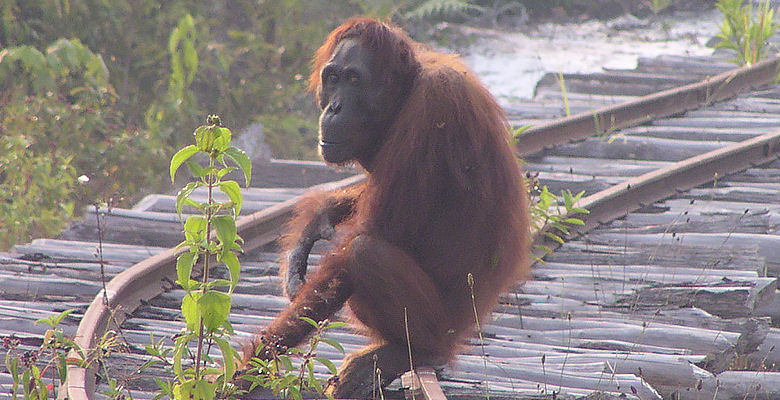Saving the planet

International scientists, including Liverpool John Moores University’s Professor Serge Wich, have urged the three nations who share the Asian island of Borneo to collaborate more closely to save their endangered wildlife and meet development goals.
By coordinating conservation and development efforts as well as reforming land-use, Malaysia, Indonesia and Brunei could retain up to half of the land of Borneo as forests, protect elephant and orangutan habitats, reduce carbon dioxide emissions by 50 per cent, and possibly significantly reduce the opportunity costs by billions of dollars.
The study, published in the scientific journal Nature Communications, is led by researchers at the ARC Centre of Excellence for Environmental Decisions (CEED).
It reveals that the governments’ current land-use plans are inadequate, and will fall significantly short of meeting their conservation goals. The researchers found that integrated planning between the three nations, including coordinating conservation and development plans, and allowing changes to existing land-use allocations, will achieve substantial savings while requiring less land for protected areas. It will also deliver the greatest area for reduced impact logging – logging practices that are better for the environment.
Professor Serge Wich from the LJMU School of Natural Sciences and Psychology said:
"This study highlights that countries should try to work together to reach their development and conservation targets. This is an important result and hopefully future studies will assess this for other countries where conservation efforts are ideally coordinated between countries. For great apes it would be very valuable to conduct similar studies in Africa where we see a surge in large-scale oil-palm development, which could easily lead to many of the negative biodiversity outcomes as we have seen in Borneo. Careful planning can hopefully mitigate those negative impacts as indicated for Borneo in this study."
Borneo is the world’s third largest island – it harbours over 14,000 plant species and 1,600 land animals. These tropical forests regulate regional and global climate and provide food and income to millions of people.
The study “Alternative futures for Borneo show the value of integrating economic and conservation targets across borders” is published in Nature Communications.

